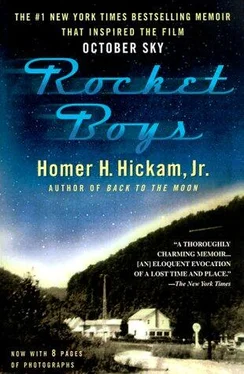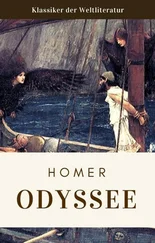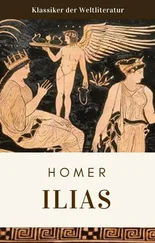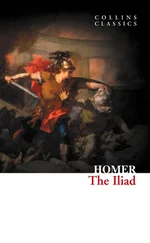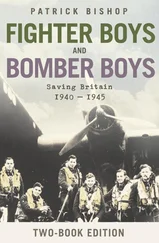The senator kept talking. I noticed that his hand crept to his back, pushing in the small of it like it hurt him there. He stood stiffly, like one of Dad’s junior engineers after their first day in the mine. His eyes had kind of a sad look to them too. I thought he was in some pain, either in his back or somewhere else.
The Welch audience stayed attentive but quiet as Senator Kennedy promised to create a food-stamp program. The men who had gotten out of the Lincolns and Cadillacs applauded at the proposal, but they were joined by only a few people in the crowd. The senator paused and brushed the hair from his forehead in a nervous gesture. “I think the people of this state need and deserve a helping hand, and I’m going to see that you get it!” he shouted, socking the air. Only silence came back at him. I noticed some people starting to leave. The senator frowned and looked worried, and I felt sorry for him. “How about some questions?” he asked. He sounded a little desperate.
My hand shot up. For some reason, he noticed me right off. “Yes. The boy in the, um, suit.”
“Oh, God,” Emily Sue groaned. “You’re going to embarrass the whole county.”
I ignored her. “Yessir. What do you think the United States ought to do in space?”
“Oh, please , God,” Emily Sue groaned anew.
There was a stirring in the crowd, a few hoots of derision, but Kennedy smiled. “Well, some of my opponents think I should go into space,” he said. With that, he got himself some appreciative laughter. He looked at me. “But I’ll ask you, young man: What do you think we ought to do in space?”
As it happened, lately I had been thinking about the moon a lot. In between spring storms, Jake’s telescope allowed me to walk down the rills and climb the mountains and stroll the maria of the moon in my mind. It helped me when I was sad about Daisy Mae, or worried about my parents moving to Myrtle Beach, or contemplating my future. The moon had become near and familiar, and that’s why my answer just sort of popped out. “We should go to the moon!” I said.
The senator’s entourage laughed, but he shushed them with an irritable wave of his hand. “And why do you think we should go to the moon?” he asked me.
I looked around and saw men in their miners’ helmets, so I said, “We should go there and find out what it’s made of and mine it just like we mine coal here in West Virginia.”
There was more laughing, until one of the miners spoke up. “That boy’s right! We could mine that old moon good!”
“Hell,” another miner shouted out, “West Virginians could mine anything!”
A ripple of good-natured applause went through the crowd. There were a lot of grins. Nobody was leaving.
Kennedy seemed to be energized by the response. “If I’m elected president,” he said, “I think maybe we will go to the moon.” He swept his eyes across the people, now attentive. “I like what this young man says. The important thing is to get the country moving again, to restore vigor and energy to the people and the government. If going to the moon will help us do that, then maybe that’s what we should do. My fellow Americans, join with me and we will together take this country forward….”
The crowd responded heartily. Kennedy was talking about working to make the country great again, when Emily Sue dragged me away. “What’re you doing?” I demanded. “I’m having fun.”
“We’re going back to Philips and Cloony before they close.”
“What for?”
“You’re not going to Indianapolis in that orange suit. It’s the most carnival thing I’ve ever seen!”
I stopped dead in my tracks. “I like my suit.”
She started to argue, but then said, “I don’t doubt it.” She put her hand on my back and propelled me forward.
It was after dark by the time we got back to Coalwood. I came inside wearing a dark blue suit, which I hated even as Mom and Emily Sue’s mother praised it. Mom said she’d never seen me so handsome. I could only wish she’d seen me in the O’Dell suit. I told her about the senator instead. “You wouldn’t believe the things Sonny said to him,” Emily Sue sighed.
Dad came in and gave my suit a quick inspection. I told him about the senator. “Kennedy?” He frowned. “A damn pinko if there ever was one.”
Dad left, heading outside, probably to go up to the mine. Mom looked after him and murmured, “A good-looking pinko, that’s for sure.”
After Emily Sue left, I went upstairs and hung my dreary new suit in my closet. At least I had one thing to comfort me. In the jacket pocket was a new tie I’d bought when Emily Sue wasn’t looking. It was a glossy light blue, about six inches wide, and painted on it was a big red cardinal, the West Virginia bird. The cardinal was looking up at the sky, and its bright orange beak was open as if it was singing. It was a glorious tie, one that could be spotted clear across a room, which I figured was an important attribute. If I couldn’t wear O’Dell’s suit, I was still going to show the National Science Fair at least a little Big Creek Missile Agency style.
25
THE NATIONAL SCIENCE FAIR
THE MONTH FOLLOWING the science fair in Bluefield seemed to flash by. There was so much to do to get ready. Happily, Miss Riley seemed to blossom with the spring. The color returned to her cheeks, and her eyes became bright once more. Every day after classes were done, she worked with me on my presentation skills. She also called teachers in other high schools who had sent students to the nationals, just to get some tips on how to prepare and present. Every day I honed my spiel a little more so that I could quickly deliver a learned presentation on the mathematics of the design of De Laval nozzles, the calculations of specific impulse and mass ratios, and the trigonometry of altitudes needed for an amateur rocketry test range.
Quentin came to my house on weekends and helped me prepare charts and diagrams of the nozzle functions, rocket trajectories, and fin designs. O’Dell found a piece of black velvet somewhere on which to lay out our rocket hardware. He also built some wooden boxes to hold it all, cushioned with newspaper for protection. Sherman and Billy took photographs of Cape Coalwood and put them in a photo album. Roy Lee made three-by-five cards for each nozzle, nose cone, and casement, with a description of its dimensions and function.
While the boys and I kept our eye on the National Science Fair, the Coalwood mine continued to be idle. Some miners, desperate to make some money, tried to enter to work on the hoot-owl shift, but were chased away by union picketers. The company store gave credit until it couldn’t anymore. Neither the company nor the union seemed to be in any mood to settle.
Mr. Caton had gone begging to Mr. Dubonnet, and the union chief had unbent just enough to let him build me the nozzles, casements, fins, and nose cones I needed for my display. One set of nozzles showed evolutionary BCMA designs, from the simple countersink version to our latest beauty with an ablative coating. They were all jewels. Mr. Caton had done himself especially proud on one of them, cutting all the waste metal off it until the converging/diverging angles could be seen from the outside. I was certain it looked as good as any nozzle on any rocket taking off from Cape Canaveral.
I went to the union hall and thanked Mr. Dubonnet for letting Mr. Caton do the work. “Just tell them your hardware was built by the UMWA,” he said grimly. He had a right to be grim. I knew he was completely out of strike funds and the commodity food from the state was dwindling. I felt nearly ashamed to bother him with my rockets.
At home, Dad still went to work every day, joining his foremen for safety inspections and even rock dusting when necessary. He passed by all our display preparations in the basement going and coming from the mine, but said nothing to me about them. He was gone by the time I got up in the morning, and I was either in my room studying or in bed by the time he got home. He had kept his promise to help me when I asked for it, but seemed to take very little interest in my upcoming trip to Indianapolis. I didn’t expect anything else.
Читать дальше
Конец ознакомительного отрывка
Купить книгу
